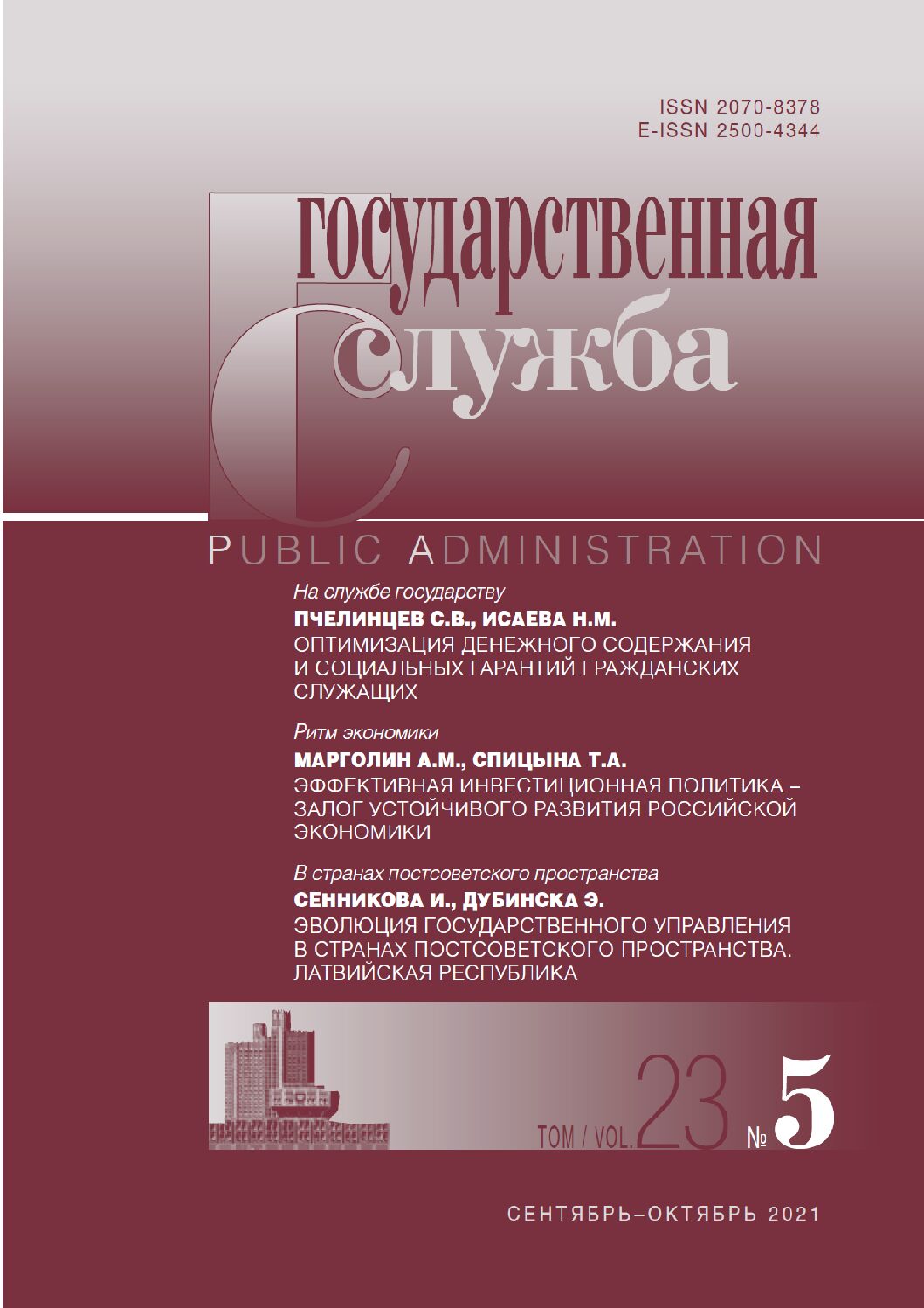Recommended link to article:
ILYA JAKOVLEVICH KAPLUNOVICHа
SVETLANA MIKHAIKOVNA KAPLUNOVICHа
аNovgorod branch of the Russian Presidential Academy of National Economy and Public Administration
DOI: 10.22394/2070-8378-2021-23-5-92-98
Abstract:
The founder of humanistic psychology A. Maslow claimed: those who have only a hammer as a tool are inclined to consider the problem as a naill. Is it possible to learn to see in subordinates not nails, but individuals of joint labor activity? What effective management methods are able to identify the true cause and hidden motives of the employee, influence them and get him to voluntarily accept the actions expected and necessary for the manager? The answer to these questions is the purpose of the described study. In management, the Japanese ”Five Why” method is widespread, which, according to the authors, is not productive enough. Having abandoned the formal-logical and relying on the causal-genetic method of research, the technology of adaptive learning in the zone of proximal development, the authors propose another, domestic approach, which has proven its greater efficiency. The article describes the technology of working with it in practice and its advantages. When using the «keyword» technology, the movement towards the result is purposeful. Within the framework of the individual logical trajectory it affects the reasoning of the employee, not the manager. With these questions, the manager constantly assesses and leads the subordinate into an individual zone of proximal development, and the discussion is held within it (that is, the developing effect of the employee’s reflections is ensured). Reliance on the keywords of the respondent ensures that there are no obstacles in the construction of inferences. If in the end there are obstacles, they are quickly leveled by relying on the next keyword of the respondent.
Keywords:
personnel Management, transactional analysis, method of ”key word”, method ”of five why”, causal genetic approach, adaptive learning in the zone of the nearest development
Received:
October 2, 2021
References:
Becker Gary S. Human Capital. A Theoretical and Empirical Analysis, with Special Reference to Education: Third Edition. Chicago and London: The University of Chicago Press, 1993.
Berger U. Krasivy`j vopros. Kak neodinarny`e voprosy` privodyat k genial`ny`m ideyam. – Mn.: Popurri, 2014. In Russian.
Bern E. Igry, v kotorye igrayut lyudi. Lyudi, kotorye igrayut v igry. M.: «Eksmo», 2020. In Russian.
Berne E. Games People Play – The basic Hand Book of Transactional Analysis. N-Y: Ballantine Books 1996.
Blaz Kos. The 5 Whys technique – dig deep to find the root cause of any problem. // https://www.spica.com/blog/5-whys
Drucker P.F. Managing Oneself. – Harvard: Business Revier, 2005 – pp. 100 – 109.
Gregersen Hal. Questions are the answer. A Breakthrough Approach to Your Most Vexing Problems at Work and in Life N-Y.: ASOS. – 2018.
Griboedov A.S. Gore ot uma. M.: Eksmo, 2020. In Russian.
Isikava K. Yаponskie metody upravleniya kachestvom. M.: Ekonomika, 1988. In Russian.
Kant Immanuel. Critique of Pure: Reason Penguin Books Ltd., 2007.
Kaplunovich S.M., Kaplunovich I.J. Theoretical Basis for Adaptive Education in the Zone of Nearest Development. European Journal of Natural History, 2016. № 4. pp. 103–107
Kaplunovich I.YA. Realizaciya adaptivnogo obucheniya posredstvom kauzal’no-geneticheskogo podhoda. Mezhdunarodnyj zhurnal eksperimental’nogo obrazovaniya, 2017, № 12. P. 11–16. In Russian.
Kaplunovich I.YA., Kaplunovich S.M. Pedagogicheskie priemy ucheta individual’nyh osobennostej myshleniya uchashchihsya pri frontal’nom obuchenii. Pedagogika, № 12, 2018. P. 47–54. In Russian.
Levitt, S.D. and List, J.A. Was there Really a Hawthorne Effect at the Hawthorne Plant? An Analysis of the Original Illumination Experiments. American Economic Journal: Applied Economics. – Vol. 3 No. 1 January 2011. pp. 224 – 238.
Nersesyanc V.S. «Sokrat». M.: Izdatel’stvo «Norma», 2018. In Russian.
Sadovnichij V.A. Lev Semyonovich Vygotskij. O lyudyah Moskovskogo universiteta. 3-e izd., dopolnennoe. M.: Izdatel’stvo Moskovskogo universiteta, 2019. P. 134–140. In Russian.
Sobchak A.A. Hozhdenie vo vlast’. Rasskaz o rozhdenii parlamenta& M.: Izd-vo «Novosti», 1991. In Russian.
Surikov, I. E. Sokrat. M.: «Akademicheskij Proekt», 2017. In Russian.
Serrat, Olivier. The Five Whys Technique. Knowledge Solutions: Tools, Methods, and Approaches to Drive Organizational Performance. N-Y: Springer Open, 2017. pp. 307–310.
Shultz T. Investing in People: The Economics of Population Quality». University of California Press, Berkeley and Angeles, California, 1981.
Stewart I, Joines V. TA Today: A New Introduction to Transactional Analysis. N-Y: University of Columbia, 1987.
Teaming: How Organizations Learn, Innovate, and Compete in the Knowledge Economy / by Edgar H. Schein and Amy C. Edmondson. N-Y: Wiley & Sons, Incorporated, John, 2012.
Trahair R.C. S.E. Mayo: the humanist temper. New Brunswick, 2005.
Vygotskij L.S. Myshlenie i rech’. M.: Ast, 2021. In Russian.a
Articles in Open Access mode are published under the Creative Commons Attribution 4.0 International (CC BY) license.

